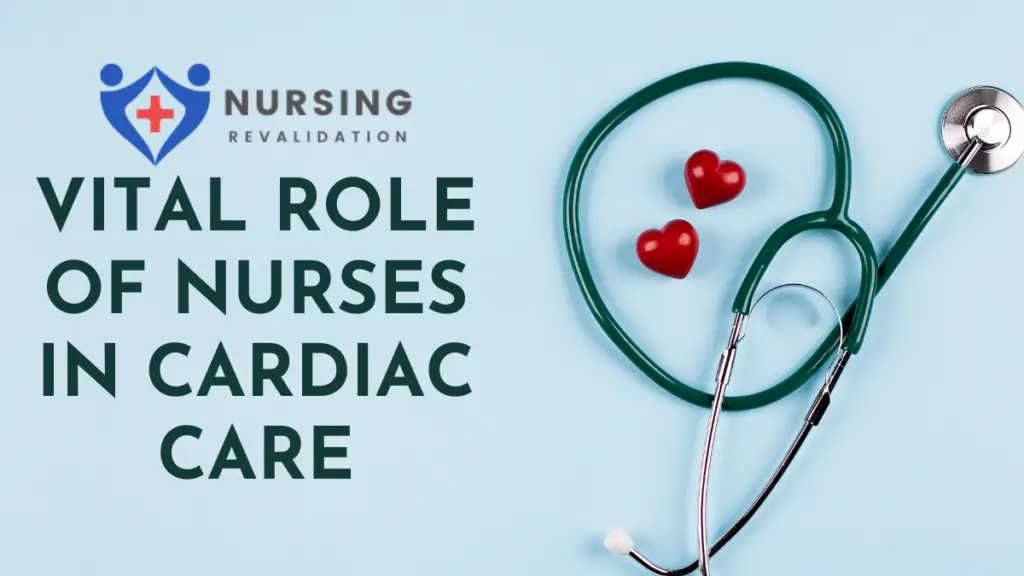In the realm of healthcare, particularly in the specialized field of cardiac care, nurses play a pivotal role in ensuring patient well-being, recovery, and overall management. Their contribution extends far beyond administering medications and monitoring vital signs; rather, it encompasses a multifaceted approach encompassing education, support, and collaboration with interdisciplinary teams. In this comprehensive guide, we delve into the intricate responsibilities and profound impact of nurses in cardiac care, shedding light on their indispensable role in enhancing patient outcomes and quality of life.
Understanding Cardiac Care
Before delving into the role of nurses in cardiac care, it’s imperative to grasp the fundamental aspects of this specialized domain. Cardiac care revolves around the diagnosis, treatment, and management of cardiovascular diseases, encompassing a spectrum of conditions ranging from coronary artery disease to heart failure and arrhythmias. With cardiovascular diseases remaining a leading cause of mortality worldwide, the significance of effective cardiac care cannot be overstated.
The Integral Role of Nurses in Cardiac Care
Patient Education and Empowerment
One of the primary responsibilities of nurses in cardiac care is patient education. Nurses serve as educators, equipping patients with the knowledge and skills necessary for self-management of their condition. From explaining medication regimens to providing dietary guidelines and teaching symptom recognition, nurses empower patients to actively participate in their care journey, fostering a sense of autonomy and control.
Holistic Assessment and Monitoring
Nurses are adept at conducting comprehensive assessments of cardiac patients, encompassing not only physical symptoms but also psychological and emotional aspects. Through diligent monitoring of vital signs, electrocardiograms, and telemetry data, nurses play a crucial role in early detection of complications, enabling prompt intervention and prevention of adverse outcomes.
Collaboration and Communication
Effective communication and collaboration are at the heart of successful cardiac care, and nurses serve as linchpins in interdisciplinary teams. Whether liaising with cardiologists, allied health professionals, or patients’ families, nurses facilitate seamless coordination of care, ensuring that all stakeholders are aligned in their efforts to optimize patient outcomes.
Patient Advocacy and Support
In the complex landscape of healthcare, patients often find themselves navigating a labyrinth of medical jargon and treatment options. Nurses act as advocates for their patients, ensuring that their voices are heard and their preferences respected. Moreover, nurses offer unwavering support to patients and their families, serving as pillars of strength during times of uncertainty and distress.
Evidence-Based Practices in Cardiac Nursing
The practice of cardiac nursing is underpinned by a commitment to evidence-based care, whereby interventions and protocols are informed by the latest research findings and clinical guidelines. By staying abreast of emerging evidence and participating in continuing education initiatives, nurses ensure that their practice remains aligned with best practices, thus enhancing the quality and safety of patient care.
The Impact of Nurse Staffing on Patient Outcomes
Research has consistently demonstrated the profound impact of nurse staffing levels on patient outcomes in cardiac care settings. Studies have shown that higher nurse-to-patient ratios are associated with reduced mortality rates, fewer complications, and shorter hospital stays. By advocating for optimal staffing levels and workload management, nurses champion patient safety and quality of care, thus underscoring their role as patient advocates.
Conclusion
In conclusion, the role of nurses in cardiac care is multifaceted and indispensable, encompassing aspects of education, assessment, collaboration, and advocacy. Through their unwavering dedication and expertise, nurses contribute significantly to the holistic management of cardiovascular diseases, ultimately improving patient outcomes and enhancing quality of life. As we navigate the evolving landscape of healthcare, it is imperative to recognize and celebrate the invaluable contributions of nurses in cardiac care, ensuring that they receive the support and recognition they rightfully deserve.

